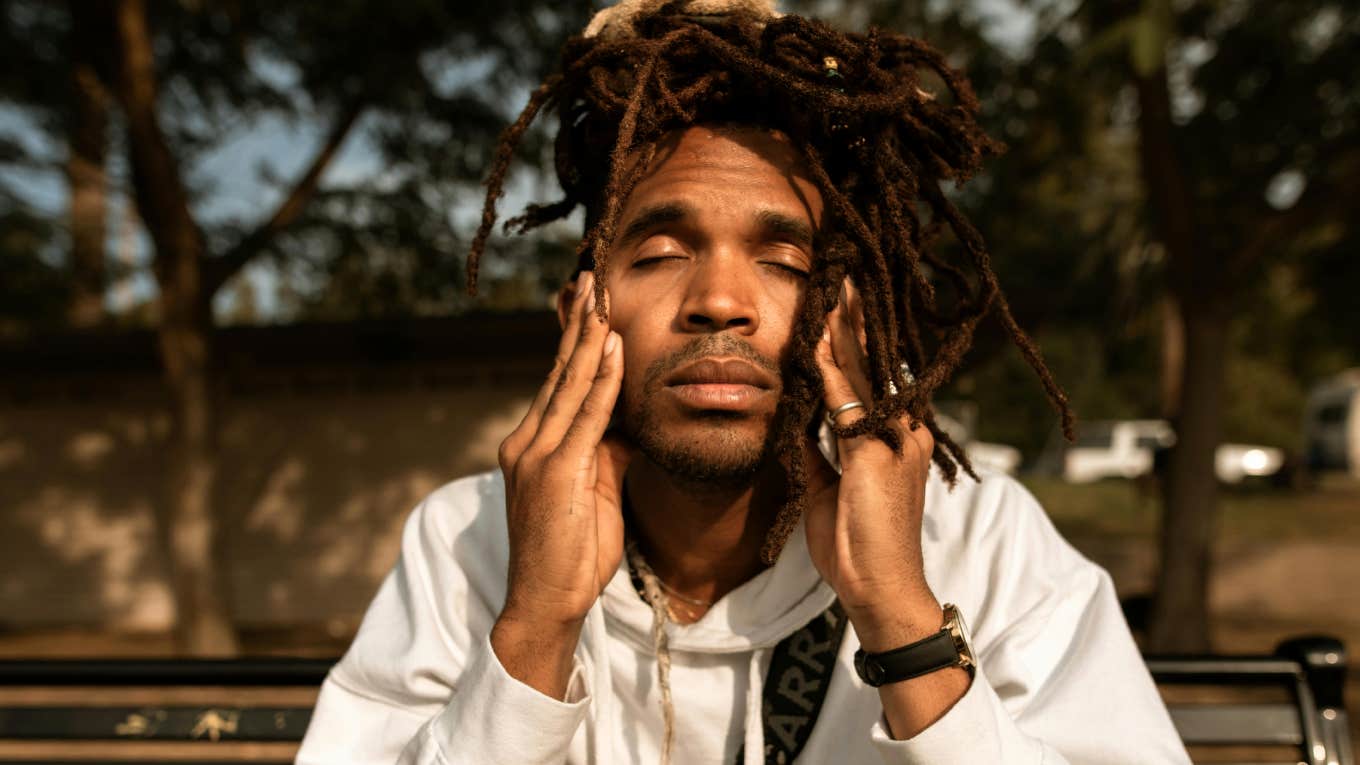How And Why Millennials And Gen-Z Deal With Anxiety Very Differently
Generational experiences play a significant role in shaping how anxiety manifests and how individuals respond to it.
 Mental Health America (MHA) | Pexels
Mental Health America (MHA) | Pexels Anxiety is a growing concern across all generations, but Millennials and Gen-Z experience and cope with it in uniquely distinctive ways. These differences stem from generational shifts in societal values, technological advancements, and major historical events that shaped their lives.
Understanding how these two generations handle anxiety provides insight into broader mental health trends and informs future strategies for addressing these challenges.
How and Why Millennials And Gen-Z Deal With Anxiety Very Differently
 voronaman / Shutterstock
voronaman / Shutterstock
Anxiety disorders are now recognized as the most common mental health condition worldwide, impacting millions. While the causes of anxiety are varied and complex, generational experiences play a significant role in shaping how it manifests and how individuals respond to
Millennials: The Transitional Generation
Millennials (born 1981–1996) sit at the crossroads of analog and digital worlds. They grew up during a time when technology began to transform society but hadn’t yet reached the level of ubiquity we see today. Raised with traditional societal values but exposed to the advent of social media, Millennials often feel torn between two paradigms: one emphasizing stability and another demanding adaptability.
This generation has been defined by major societal upheavals:
- The Great Recession (2008): Many Millennials entered the workforce during or after this economic downturn, leading to financial instability, career setbacks, and a sense of delayed adulthood.
- Student Loan Debt Crisis: Millennials are burdened with unprecedented levels of student loan debt, contributing to chronic financial anxiety.
- Rise of Social Media: Platforms like Facebook and Instagram introduced a culture of comparison and heightened the fear of missing out (FOMO), exacerbating stress and anxiety.
Gen-Z: The Digital-Native Generation
Gen-Z (born 1997–2012) has never known a world without the internet. They are digital natives who grew up with smartphones, social media, and instant access to information. While these tools provide numerous advantages, they also expose Gen-Z to:
- Cyberbullying and Online Harassment: The anonymity of the internet has given rise to pervasive bullying that contributes to mental health struggles.
- Overexposure to Global Crises: Gen-Z is constantly bombarded with news about climate change, political instability, and other global issues, leading to widespread eco-anxiety and existential fears.
- Perfectionism on Social Media: Platforms like TikTok and Instagram promote idealized versions of life that intensify feelings of inadequacy and self-doubt.
These distinct generational contexts profoundly influence how Millennials and Gen-Z perceive and address anxiety.
How Millennials Cope With Anxiety
1. Traditional Therapy and Medication
Millennials are strong advocates for therapy and medication as foundational tools for managing anxiety.
- Therapy Accessibility: Many Millennials seek out therapy, including Cognitive Behavioral Therapy (CBT), which is widely regarded as effective for treating anxiety disorders.
- Antidepressants and Anti-Anxiety Medications: This generation is generally open to using medication to manage symptoms, especially when recommended by mental health professionals.
While Millennials have embraced professional help, lingering stigma, and financial barriers sometimes prevent consistent access to these resources.
2. Focus on Career Stability
Anxiety among Millennials often stems from financial stress and job instability. In response, they actively pursue:
- Career Counseling: Many Millennials turn to career coaches or mentors to navigate job transitions and develop long-term plans.
- Workplace Wellness Programs: Employers have introduced mental health days, Employee Assistance Programs (EAPs), and counseling services to support Millennials facing work-related anxiety.
However, achieving work-life balance remains a significant struggle for this generation, as traditional workplace structures often clash with their mental health needs.
3. Leveraging Self-Help Resources
Self-help is a hallmark of Millennial anxiety management:
- Mindfulness Apps: Apps like Calm, Headspace, and Insight Timer are popular among Millennials, offering guided meditation and stress-reduction techniques.
- Self-Help Literature: This generation avidly consumes books and podcasts focused on personal development and mental health.
- Fitness and Yoga: Physical activity is a preferred outlet for stress, with many Millennials incorporating yoga or exercise into their routines to combat anxiety.
4. Social Media Detoxing
While Millennials were the pioneers of social media, many recognize its detrimental effects on mental health and opt for periodic detoxes. By setting boundaries around screen time, they aim to reduce feelings of inadequacy fueled by online comparisons.
How Gen-Z Tackles Anxiety Differently
 insta_photos / Shutterstock
insta_photos / Shutterstock
1. Social Media as a Double-Edged Sword
Gen-Z’s relationship with social media is nuanced:
- Trigger: Platforms like Instagram and TikTok often exacerbate anxiety by promoting unattainable beauty standards and fostering FOMO.
- Tool: Conversely, social media is also a source of support, as influencers and peers openly discuss mental health, normalizing conversations around anxiety.
Aware of the negative effects of constant screen time, many Gen-Zers engage in digital detox practices, such as limiting app usage or turning off notifications, to manage their mental well-being.
2. Openness and Peer Support
Gen-Z is characterized by its openness about mental health:
- Community Building: Online forums like Reddit, Discord, and Instagram provide safe spaces for Gen-Z to share experiences and coping strategies.
- Authenticity in Friendships: This generation values deep, authentic connections, often forming strong support networks among peers.
3. Embracing Alternative Therapies
Gen-Z demonstrates a willingness to explore unconventional approaches to anxiety management:
- Meditation and Breathwork: Practices like mindfulness meditation and controlled breathing exercises are increasingly popular among Gen-Z.
- Holistic Wellness: This generation gravitates towards natural remedies, such as aromatherapy, herbal teas, and essential oils, to alleviate anxiety.
4. Mental Health Advocacy
Unlike previous generations, Gen-Z actively challenges societal norms around mental health:
- Policy Change: Many advocate for systemic reforms, such as improved access to school counselors and affordable therapy.
- Activism: From organizing mental health awareness campaigns to participating in marches, Gen-Z is at the forefront of reshaping public discourse on mental well-being.
Comparing Millennials And Gen-Z
1. Stigma Surrounding Mental Health
- Millennials: Grew up during a time when mental health issues were stigmatized, making it harder for them to openly discuss their struggles.
- Gen-Z: Raised in a more accepting environment, they are vocal about mental health and advocate for societal acceptance.
2. Role of Technology
- Millennials: View technology as a tool for self-help and connecting with professionals but also recognize its limitations.
- Gen-Z: Embrace technology for peer support and advocacy but are more mindful of its negative effects, like overuse and comparison.
3. Coping Strategies
- Millennials: Prefer structured approaches, such as therapy, medication, and workplace wellness programs.
- Gen-Z: Opt for flexible, community-based solutions like online support groups and alternative therapies.
Shared Challenges and Overlapping Experiences of Millennials And Gen-Z
Despite their differences, both generations share common challenges that exacerbate anxiety:
Economic Stress
- Millennials are burdened by student loans and rising housing costs.
- Gen-Z faces uncertainties around job markets and affordability as they enter adulthood.
Climate Anxiety
Both generations are deeply concerned about the environment, but Gen-Z has a heightened sense of urgency, perceiving climate change as a direct threat to their future.
Information Overload
Constant exposure to news and social media creates a sense of overwhelm and fuels anxiety for both Millennials and Gen-Z.
Lessons for the Future for Millennials And Gen-Z
Breaking Barriers
Both Millennials and Gen-Z are contributing to the ongoing destigmatization of mental health, setting the stage for future generations to seek help without fear or judgment.
Customizing Support
Organizations, educators, and policymakers must tailor mental health resources to the unique needs of each generation. This includes:
- Financial counseling for Millennials.
- Online mental health education for Gen-Z.
Reimagining Technology Use
Both generations highlight the importance of balancing technology’s benefits with its drawbacks. Future innovations should prioritize mental health, offering tools to reduce stress and foster genuine connection.
Millennials and Gen-Z approach anxiety management with distinct yet complementary strategies. While Millennials rely on traditional therapy, self-help resources, and workplace initiatives, Gen-Z emphasizes openness, peer support, and alternative therapies. Together, they are shaping a more compassionate and inclusive culture around mental health.
By understanding these generational differences, we can better support individuals struggling with anxiety and pave the way for healthier coping mechanisms across all age groups.
If you or somebody that you know is experiencing a mental health crisis, there is a way to get help. Call SAMHSA’s National Helpline at 1-800-662-HELP (4357) or text "HELLO" to 741741 to be connected with the Crisis Text Line.
Anxiety Support aims to create a safe and supportive space for individuals navigating the challenges of anxiety. Drawing on personal experiences and insights gained along their journey, they aim to share valuable information, coping strategies, and stories that resonate. Together, we can turn vulnerability into resilience.

